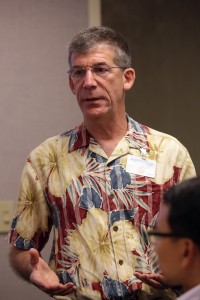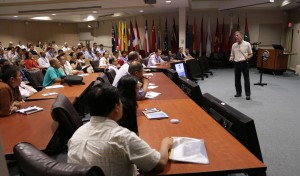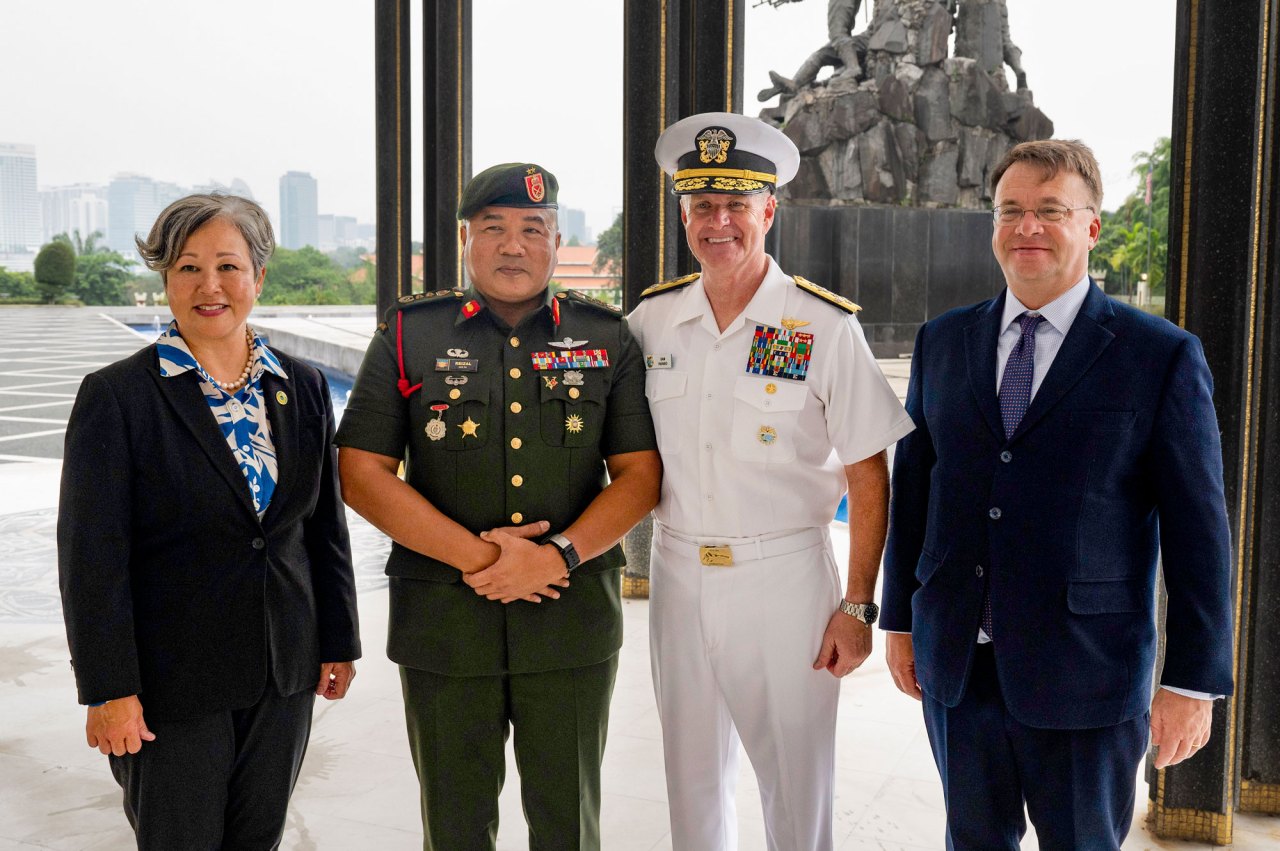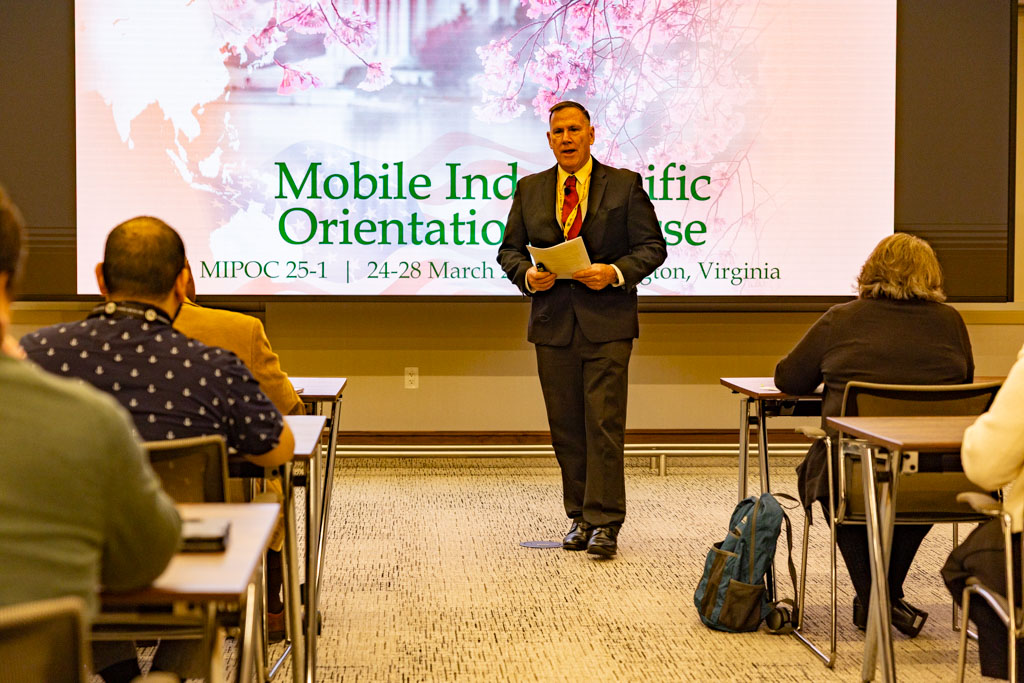
Mike Sashin, a disaster management and humanitarian assistance advisor for the Center for Excellence in Disaster Management and Humanitarian Assistance, conducts a condensed Humanitarian Assistance Response Training (HART) course for students of the Asia-Pacific Center for Security Studies’ Comprehensive Crisis Management course in Honolulu, Hawaii June 23. Together, the two courses provide students from around the Asia-Pacific with a functional understanding of how to respond to crises and coordinate civil-military collaborations in disaster respond situations.
HONOLULU, Hawaii – In the world of natural disasters, knowledge is power. As a means of building the knowledge base in the Asia-Pacific, two U.S. Pacific Command organizations – the Center for Excellence in Disaster Management and Humanitarian Assistance (CFE-DMHA) and Asia-Pacific Center for Security Studies (APCSS) – have partnered together to provide officials from 32 countries, territories and economic zones with as much knowledge on humanitarian assistance and disaster response as possible.
As part of the center’s wide-ranging curriculum, each year APCSS offers a four-week Comprehensive Crisis Management (CCM) course to students from partnered nation’s militaries, government ministries and disaster management authorizes, as well as nongovernmental organizations, regional and international agencies and organizations, and academia. The course focuses on developing leader skills in five key areas: comprehensive understanding of the complexity of crisis situations, strategic assessment, cooperation and collaboration, communication and use of appropriate technology. In addition, this year Fellows of the CCM course had the option to take a two-day Humanitarian Assistance Response Training (HART) elective course taught by CFE-DMHA advisors.
Tom Peterman, CCM course manager for APCSS believes the HART elective is an important addition to the CCM course since “crises in the Asia-Pacific are very often disasters. So, the more we can make people aware, and train people in disaster risk reduction, disaster management and response, the better off the people of the Pacific are going to be.”
The HART course is traditionally a four-day class aimed at U.S. military personnel assigned to units responding to disasters in the U.S. Pacific Command area of responsibility.
“HART focuses on the civil-military relations between the affected state, humanitarian agencies and military forces assisting response efforts,” said Mike Sashin, a DMHA advisor for CFE-DMHA. “Knowing how to support these efforts, and how to maximize effectiveness in the aftermath of a disaster is critical to saving lives and minimizing suffering.”

Mike Sashin, a disaster management and humanitarian assistance advisor for the Center for Excellence in Disaster Management and Humanitarian Assistance, conducts a condensed Humanitarian Assistance Response Training (HART) course for students of the Asia-Pacific Center for Security Studies’ Comprehensive Crisis Management course in Honolulu, Hawaii June 23. Together, the two courses provide students from around the Asia-Pacific with a functional understanding of how to respond to crises and coordinate civil-military collaborations in disaster respond situations.
The supplemental course instruction focused on principals of disaster management and humanitarian assistance, affected populations, public health concerns, and civil-military coordination during humanitarian operations.
“[Malaysia] has been very active in humanitarian response the last few years,” said Munirah Zulkaple, principal assistant secretary of the Malaysian National Security Council and CCM course Fellow. “But, there is much room for improvement. The [HART course] provides best practices that can be taken back and incorporated into my country’s disaster response plans.”
In addition to the HART course providing disaster management skills, she also added, “the CCM course as a whole provides ‘soft skills’ – crisis communication, social media use and negotiation exercises – that are very helpful in building capabilities in our countries.”
-END-










Leave A Comment